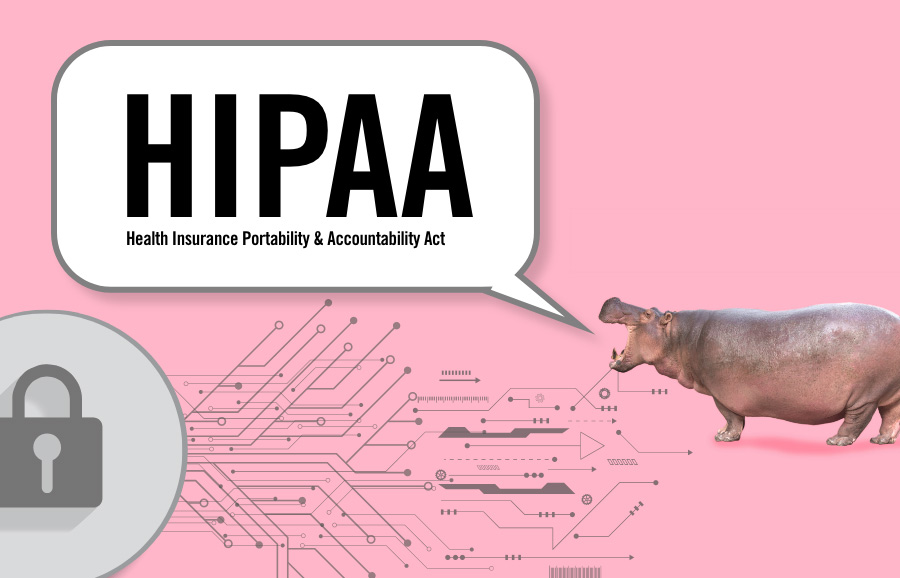
The effects of the COVID-19 Pandemic reverberate through almost every sector, healthcare included. This global event has had a remarkable impact on the healthcare industry and beyond. In order for remote work, digital communications, e-commerce and virtual visits to become the regular way of doing business going forward it is essential that marketing technology platforms are able to safeguard organizations and patients by adhering strictly to data management regulations with utmost sensitivity. The necessity of having a multichannel approach to brand operations, marketing communications, and advertisements is sometimes hampered by the limitations placed on healthcare organizations from adhering to HIPAA and other regulatory laws. But have no fear—we’re here with advice on how you can launch your healthcare marketing tactics without worrying about these strict regulations!
What is HIPAA and How Does it Impact Marketing Communications and Advertising?
HIPAA (Health Insurance Portability and Accountability Act) is a federal law that regulates how healthcare organizations use and protect patient data. It sets standards for protecting the privacy of patients’ medical information, including how it can be used in marketing and advertising communications.
When using protected health information (PHI) in marketing or advertising communications, healthcare organizations must comply with the HIPAA Privacy Rule and any other applicable state or federal laws. PHI includes information about a patient’s health condition, medical history, test results, and treatments. Under HIPAA, healthcare organizations must obtain authorization from patients before using their PHI in marketing materials or communications.
HIPAA also restricts the use of PHI in other forms of advertising. For example, HIPAA prohibits healthcare organizations from using a patient’s name or likeness in any advertisement without their permission. Healthcare organizations must also abide by restrictions on how they can share information with third-party vendors, such as marketing agencies and media outlets.
While HIPAA provides important protection for patients’ privacy and information, it can also make marketing a more complex process. Healthcare organizations must take extra precautions when using PHI in advertising communications to ensure compliance with the regulation. It is important that healthcare professionals familiarize themselves with HIPAA requirements before engaging in any marketing or advertising activities involving PHI. By doing so, healthcare organizations can ensure that their communications comply with HIPAA, while still delivering useful and timely information to the public.
So, What Can We Do to Protect our PHI and Marketing Data?
To successfully ensure HIPAA compliance, it’s integral to enlist the assistance of experts in this field who have practical and first hand experience in end-to-end encryption and cloud environments built on either Amazon Web Services (AWS) or Microsoft Azure. Both vendors offer an extensive list of services that are able to meet the requirements for HIPAA data security. An up-to-date selection can be accessed at Amazon’s page dedicated solely to available HIPAA services here; additionally, readers should bookmark this white paper from AWS with detailed information about their compliance measures here.
From there, organizations must also have a reliable system in place to audit the data — meaning they must track and document who accessed the data and when. This is often achieved by using log files that are regularly monitored for suspicious activity. Luckily for us in 2023 Amazon, Google and Microsoft already have these capabilities ready for us to use. Additionally, it’s recommended to have policies in place that dictate user access privileges, with the most sensitive information being assigned the highest level of security.
Organizations should also ensure their data is backed up regularly, and have processes in place to restore lost data with minimal disruption to their operations. Moreover, organizations must abide by HIPAA’s privacy rule which limits who can access and use patient information. This means that only authorized personnel can view or exchange PHI for the purpose of treatment, payment, or operations.
Finally, organizations need to remain compliant with HIPAA by regularly auditing their data storage and security measures. This includes conducting regular risk assessments to identify any vulnerabilities in the system that could be exploited by hackers. Organizations should also periodically review their policies and procedures to make sure they are up-to-date. Additionally, organizations must ensure they are using the latest security protocols and patching any known weaknesses in their systems. By staying up-to-date on HIPAA regulations and understanding best practices for data security, organizations can avoid costly fines, damaging brand impact and remain compliant with HIPAA’s requirements.
How Can IMPGo Help?
We understand that healthcare organizations need secure systems to protect their sensitive data and comply with HIPAA regulations in their marketing departments and across their organizations. That’s why our Solutions Architect will take care of your needs, either using Amazon or Microsoft services—ensuring end-to-end protection for your organization. Our enterprise service is dedicated to solving these problems for our customers, so if you’d like a free assessment or would like to discuss how we can help further, please feel free contact us via phone, email or schedule a meeting here! Let us show you what makes IMPGo the go-to provider for all of your marketing technology compliance requirements.
Call | Email | Schedule | Try IMPGo for 30 days free – coming soon sign up for our Beta program.